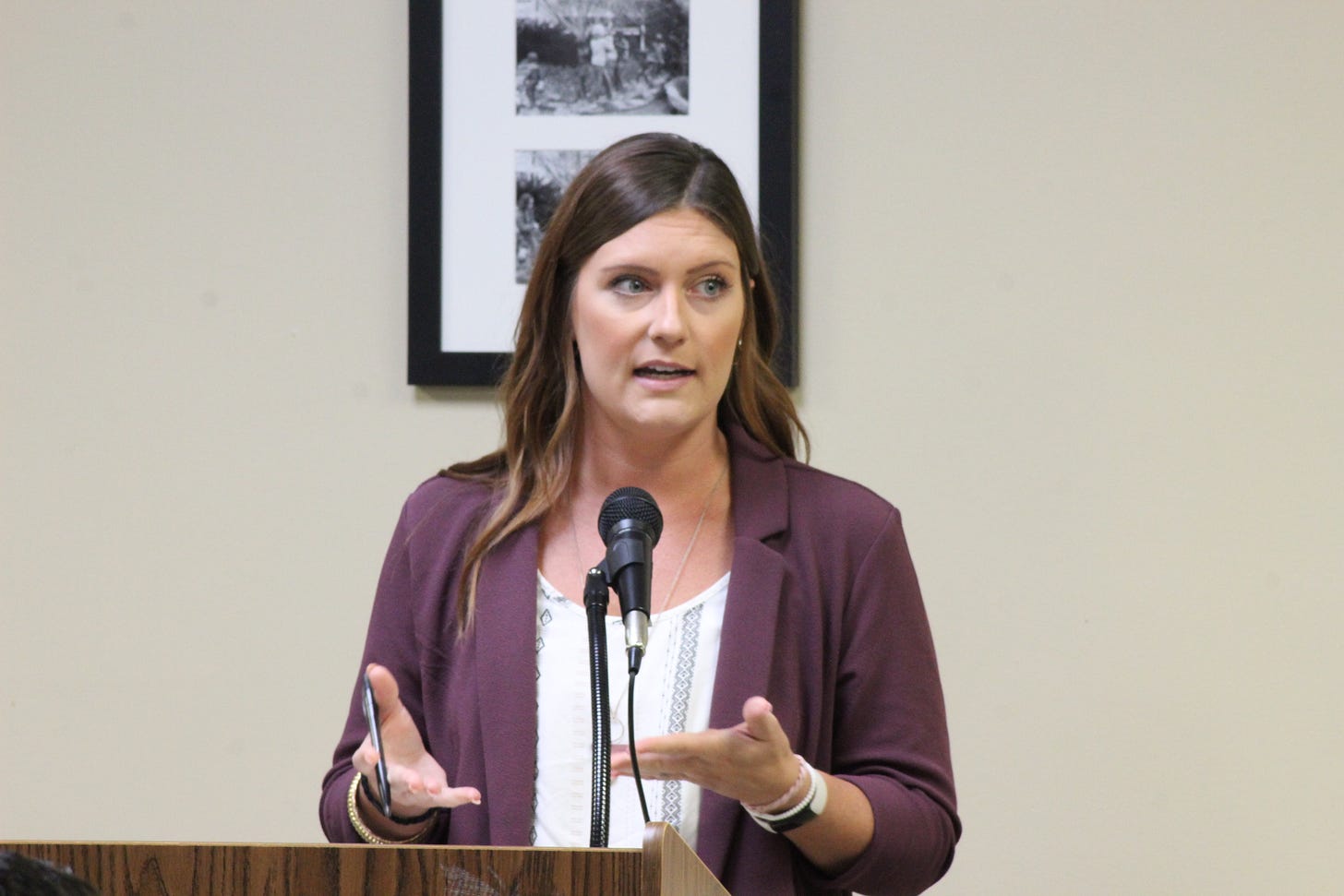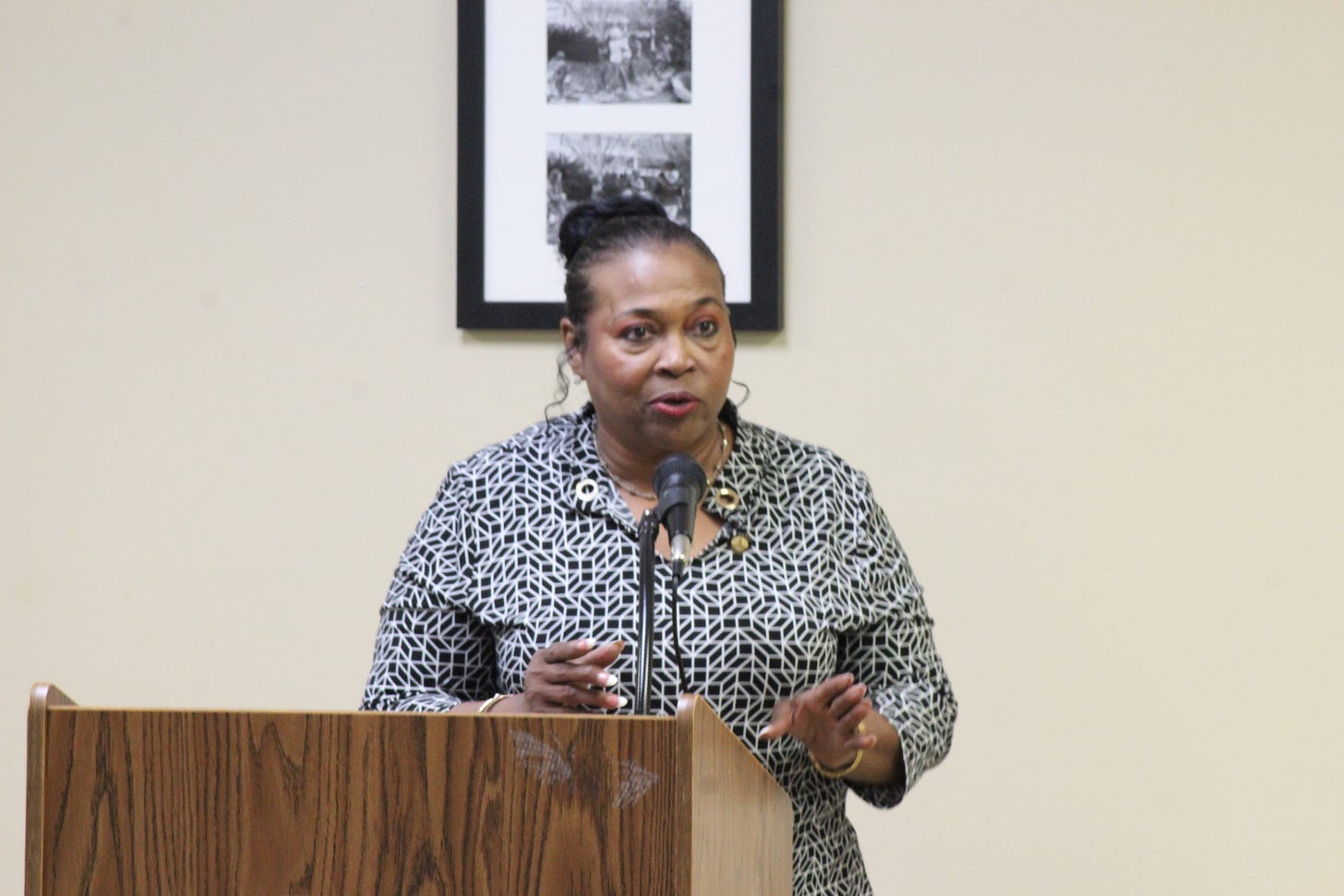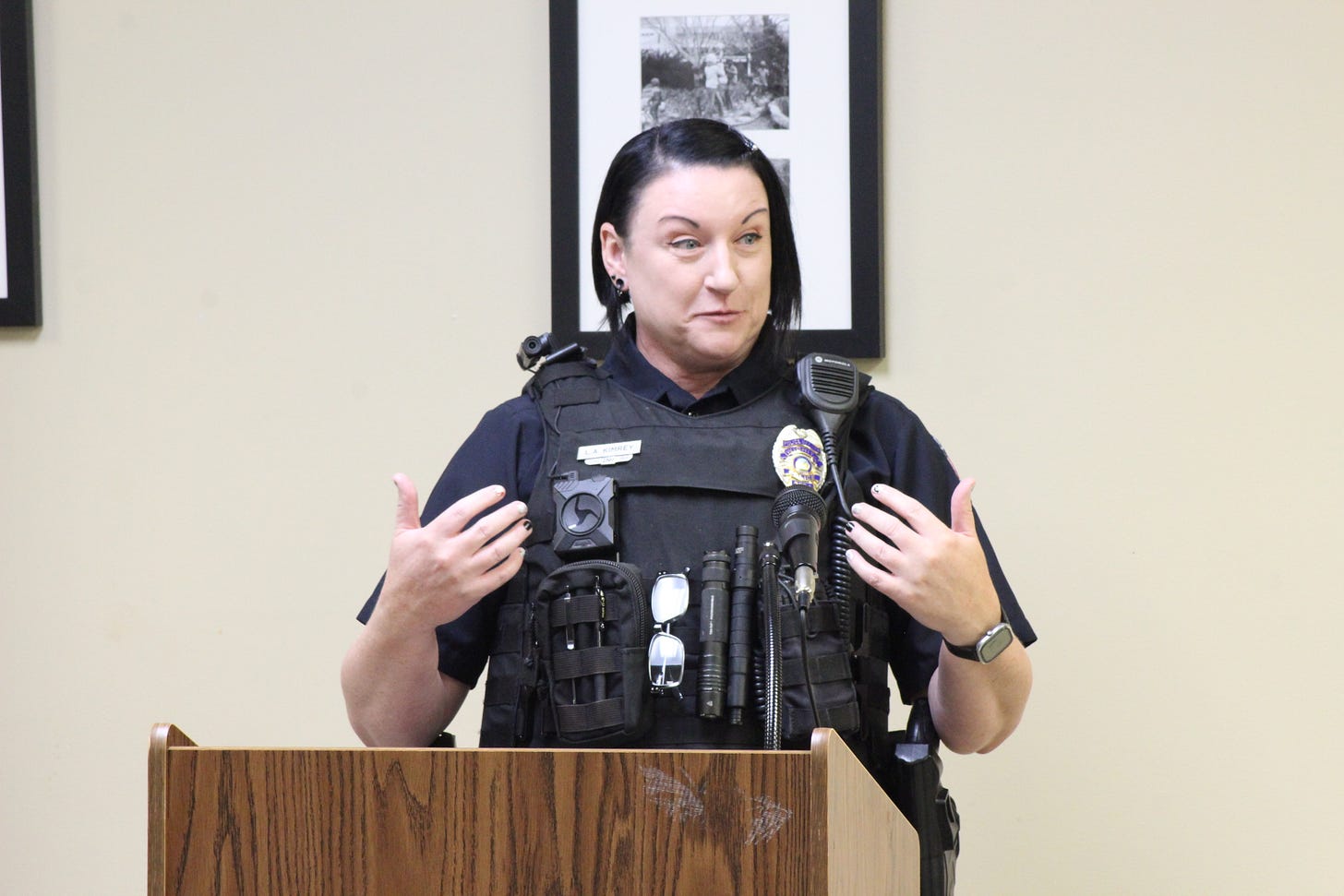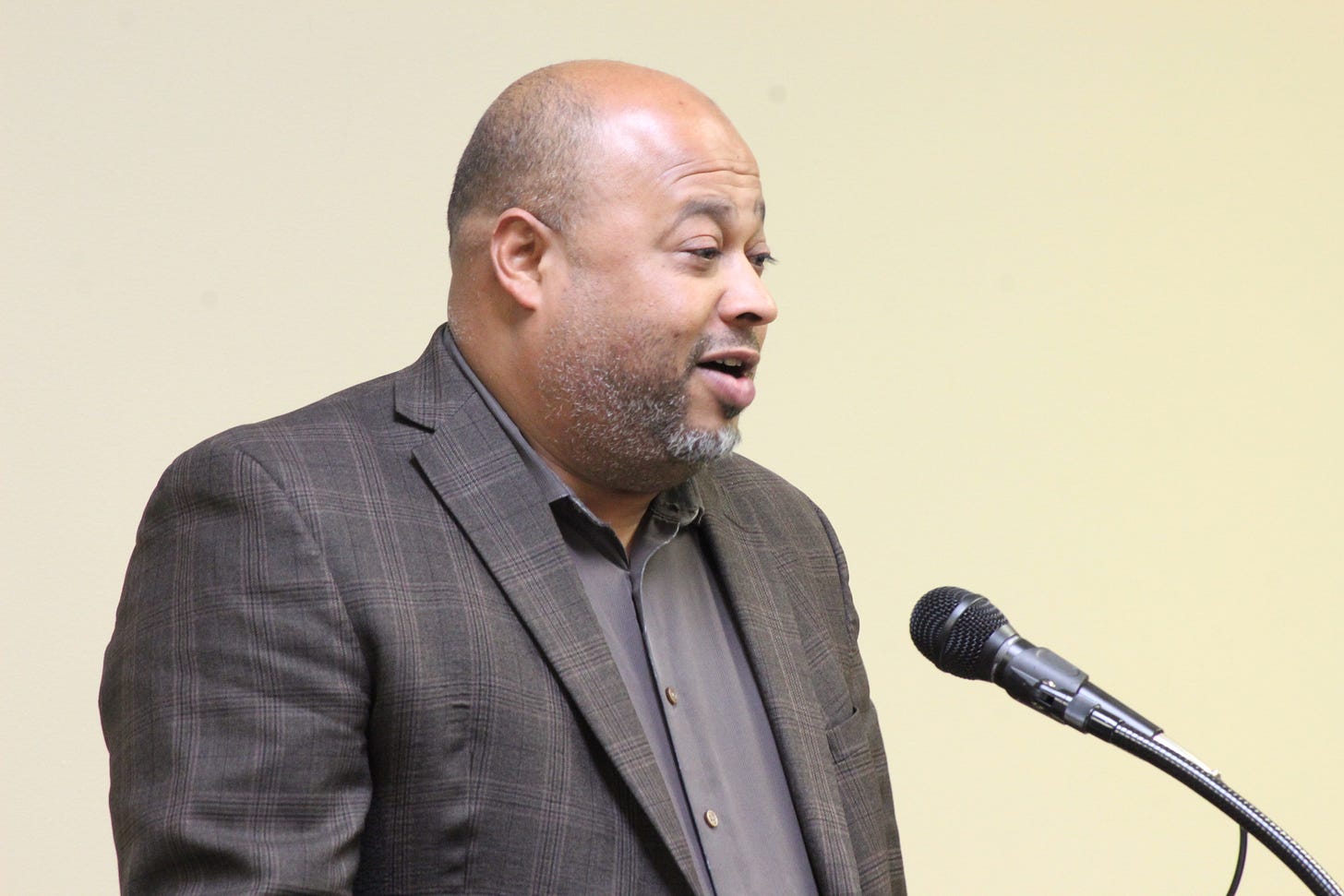Racial Profiling Advisory Board of Wichita hosts workshop for Kansans with suspended driver's license
Article/Event and Social Issues
Updated 09/18/2023 with precise number of attendees and people helped.
WICHITA - The Racial Profiling Advisory Board of Wichita (RPAB) hosted a community workshop to help educate Kansans with a suspended and or revoked driver’s license. The event took place at the Atwater Neighborhood Resource Center, 2755 E 19th Street North in Wichita on Saturday, September 16 and went from 11 a.m. to 3 p.m. A total of 147 people showed with about 59 receiving assistance for their situation from five lawyers and a law student—13 of whom have revoked licenses and 46 of whom have suspended licenses.
With more than 226,000 Kansans listed as having a suspended and/or revoked driver’s license, this is an issue affecting about 7.7 percent of Kansans—roughly one in every 13 Kansans—with more than 40,000 being affected in Wichita alone.
While there, attendees were able to file paperwork with the help of Kansas Legal Services, a free service for those who need help with things like affidavits after a car accident. Attendees were also able to hear from speakers.
Before speakers began, the Chair of RPAB Sheila Officer provided attendees with some information, clarifying that there is no relief for those with a revoked license as of this time legislatively, but attendees with revoked licenses were welcomed to stay to get information and hear from the speakers. Officer also stated they are working on helping those with a revoked license and will have a special session in October to address this particular issue.
LaWanda DeShazer, a member of RPAB, introduced the first speaker, manager of the Driver Solutions for the Kansas Department of Revenue (KDOR) Lacey Black.

Black provided information about what the department is for and the current criteria to be eligible for a restricted license.
“To be eligible for that restricted license, you can only be suspended on unpaid tickets,” Black explained. “If you have some other types of suspension, like if you were stopped with no insurance, you may have to do SR22 and $100.”
Black also stated that by calling their office they could tell you what to do to get to the point to be eligible for a restricted license, and how to apply for the license at no cost. A handout she provided attendees provided the application website and noted it would be form DC-1020. Certain eligibility restrictions may lead to a denial letter that will inform the applicant of why they were denied and that they would be able to contact their office to get more information.
Black also informed attendees about what information Driver Solutions would have.
“We’re notified that you have this unpaid ticket, and we suspend your license, but we don’t necessarily have the total amounts you need to pay or any of that specific information,” Black said. “When you’re contacting Driver Solutions, we can tell you what you owe administratively to the State, but when it comes to unpaid tickets, all we’re going to be able to tell you is where the ticket is from, and we can give you the court contact information, but we do not hold any of the data that revolves around what you actually owe to the courts.”
She also mentioned some self-service tools including the Driver’s License status check, the iKan registration renewal app, where you can also change your address for free, and the ability to print off documentation or letters they send free of charge.
To contact Driver Solutions, you can call 785.296.3671 or email KDOR_DC@ks.gov
State Sen. Oletha Faust-Goudeau (D-Sedgwick County), who has been working for years on legislation to help Kansans get back on the road, spoke next, highlighting her intentions moving forward as a state legislator.

“On August 29, there was a special meeting in Topeka to address revoked driver’s licenses,” Sen. Faust-Goudeau said. “You get in that status… you have no option…. If you have a DUI, you at least have an option to get an interlock system on your car. You can still drive. But I am committed to passing a law that all of the issues that you dealt with here today… that we change the policies within the law, so we don’t have to do these workshops.”
Sen. Faust-Goudeau specifically mentioned changing the laws that make drivers have to wait three more years for their licenses to be reinstated even if they have already paid off all their fines.
“My goal is to allow everyone with a revoked driver’s license to automatically be able to apply for the restricted driver’s license,” Sen. Faust-Goudeau said. “Then you got 12 months to make your payments.”
She also wanted people to know they can do a walk-in docket to help drivers pay down their fees, and that when people first get their ticket, they can call the number the officer circles at the bottom of the ticket to immediately set up a payment plan.
Wichita Police Officer Lori Kimrey provided information about Wichita Police Department’s ‘Second Chance Thursday’ event for the motorists.

“We started out small, and we advertised it, if you have a city of Wichita traffic warrant—and it couldn’t be a DUI because that’s a criminal thing—we could help you come in and give you a court date on your blue sheet, you sign it, promising you’ll go to your court date or pay your fines, and then out the door you went, warrant-free,” Officer Kimrey said.
Officer Kimrey also revealed the reason many people do hit and run accidents is due to having a suspended license or having a warrant and not wanting to go to jail.
“We’re trying to eliminate that,” Officer Kimrey said. “We’re trying to get people to drive safer and feel more comfortable not having that on their shoulders, driving around illegal.”
The event occurs four times a year with rotating locations to accommodate the community. The next event will be September 28 in Hyde Park from 9 a.m. to 4:30 p.m. By going, drivers can find out how many warrants they have and where those warrants are at. If they are outside of Wichita, drivers will be able to get a number to contact them to make arrangements to pay those warrants as well. The court will also be involved for convenience and drivers can set up payment plans, or possibly even eliminate the fines for people who can’t pay. She also mentioned NexStep, providing adult education programs to help people move forward with their career, being at these events.
While she said that rumors online of the event being a “scam” has discouraged people from going, she also claimed that they average 150 to 250 people that come in for each event and each time they clear 70 to 100 warrants in one day. The Driver’s License Bureau, which is also involved in the event, averages 25 to 50 driver’s licenses being reinstated or restricted, according to Officer Kimrey.
Desmond Bryant White stood up, claiming he went to one of these events as a skeptic and left grateful that he had attended the event, and mentioned the importance of learning about Senate Bill 127.
Detention Lieutenant at Sedgwick County Sheriff’s Office Darren Ramsey spoke next in place of Sedgwick County Sheriff Jeff Easter, providing statistics, answering questions, and taking notes on ways to improve the facility.
Attorney at Law Robert Moody was the last of the scheduled speakers for the community workshop for restricted driving privileges.

“If the only reason your license is suspended is because of court costs, fees, or fines, then there is an application that you can fill out to get a restricted license whereby they’ll give you a restricted license, they’ll give you one year in order to pay off all your fines, fees, and costs, and then once you make all those payments, then you’re going to be valid,” Moody said. “They way that we attack that though is we go and fill out that Hardship application—the application for the restricted license—and then we file these motions and each one of your cases in the various courthouses that you might owe money on, asking the judge to wave or reduce.”
Moody pointed out that drivers must show they are making a serious effort to get their issues taken care of as judges will be more willing to wave or provide reductions.
“The standard that the judge is looking at on whether or not to wave or reduce is whether or not it’s a financial hardship for you to continue living and paying your bills, and also to have to pay these court costs, fines, and fees,” Moody explained. “When you fill out the financial application related to these motions, they don’t just consider your income, they consider what your household looks like. Do you have dependents in the home? Do you owe child support? Do you have medical bills? Do you have student loans? When you fill out the financial affidavit associated with the motion, it’s important to put all that information because at the end of the month if your disposable income is zero or a negative number, then that pretty much proves the case.”
After Moody’s speech, people were able to ask questions for the speakers who stayed and continue to get help from the five lawyers and one law student until 3 p.m.
Thanks for reading. Be sure to like, share, and subscribe. You can also help support independent journalism in Kansas by buying me a coffee at buymeacoffee.com/kscon.
The Kansas Constitutional now has its very own website. You can find even more stories at ksconstitutional.com



